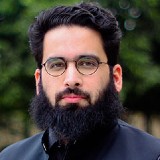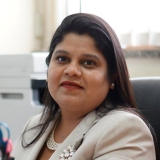SPEAKER PROFILES

Prof. Dr. Josef Börcsök
University of Kassel, Germany
Josef Börcsök was born in 1959. He received his B.Sc. degree in 1986, the M.Sc. degree in 1991 and the Ph.D. in 1995. He was for more than 10 years researchers in leading positions in the industry (Avionics, Industrial control, and Safety-Computer). During this time, he lectures at universities, as well as at universities of applied sciences with lectures of automation systems, computer technology, real-time systems, network techniques and safety-related computer technology.
Since 2005 he is Professor and head of the Department Computer architecture and System programming at the University of Kassel in Germany. The major research interests are in the field of modelling of safety-related computer technology, safety chip technology, system on chip (SoS and SSoC), Cyber Physical System CPS, real-time systems, network techniques, sensor and distributed sensor systems and calculations models for PFD/PFH and MTTF. He works since years on several national and international standardizations committees and is member of DKE committees, IEEE and others. He has 12 books and more than 250 publications in refereed international journals.

Prof. Dr. Dirk Draheim
Taltech, Estonia
Dr. Dirk Draheim is a Full Professor of Information Systems at Tallinn University of Technology (Taltech), Estonia, and heading the Taltech Information Systems Group. The Taltech Information Systems Group conducts research in large- and ultra-large-scale IT systems, particularly the next generation of digital government technologies and digital government ecosystems. He is also an initiator and a leader of numerous digital transformation initiatives. He received a Ph.D. from Freie Universität Berlin, Germany and a habilitation from Universität Mannheim, Germany. From 2008 to 2016, he was head of the data center of the University of Innsbruck and, in parallel, from 2010 to 2016, Adjunct Reader at the Faculty of Information Systems of the University of Mannheim. From 1990 to 2006, he worked as an IT project manager, IT consultant, and IT author in Berlin. In summer 2006, he was Lecturer at the University of Auckland, and from 2006-2008, he was area manager for database systems at the Software Competence Center Hagenberg, Austria, as well as Adjunct Lecturer in information systems at the Johannes-Kepler-University Linz. Dirk is co-author of the Springer book “Form-Oriented Analysis” and author of the Springer books “Business Process Technology,” “Semantics of the Probabilistic Typed Lambda Calculus,” and “Generalized Jeffrey Conditionalization,” and a member of the ACM.
Webpage: https://taltech.ee/en/dirk-draheim
Dr Faisal F. Khan is a graduate of the University of Oxford, A very talented and multi-skilled person. Throughout his career, Faisal has won numerous awards and scholarships including the HEC overseas scholarship, the Oxford-Noon Award and the St. Anne’s College Domus Award. As an entrepreneur, Faisal was selected amongst Europe’s 40 Biotech Leaders of the Future by Novartis in 2009 and his start-up won his team the CUE Grand Finale, the largest business plan competition at the University of Cambridge, in 2011. Dr Faisal Khan works very closely with the provincial government and is a member of the KP IT Board, the Advisory Committee at the Directorate of Science and Technology and the newly established Higher Education Research Endowment Fund, Government of Khyber Pakhtunkhwa.

H.E. Mrs Androulla Kaminara
Ambassador of the European Union to Pakistan
Mrs Androulla Kaminara took up her duties as Ambassador and Head of the Delegation of the European Union to Pakistan on 17 September 2019. Prior to her appointment, Mrs Kaminara was the Director for Africa, Asia, Latin America, Caribbean and Pacific in the Directorate General for European Civil Protection and Humanitarian Aid Operations (ECHO) of the European Commission since July 2016.
Mrs Kaminara was previously Principal Adviser and Head of the Task Force “Knowledge, Performance and Results” in the Directorate General for International Cooperation and Development of the European Commission from 2014 to 2016. From 2012 to 2013, she was the European Union Fellow at the European Studies Centre of St. Antony’s College, Oxford University, and from 2013 to 2014 the EU Academic Visitor at the same Centre, specializing in EU policies as well as in geopolitics of energy policy. From 2008 to 2012, Mrs Kaminara was the Head of the European Commission Representation in Cyprus and, from 2006 to 2008, she was the Director for Quality of all Operations in the Directorate-General for International Cooperation and Development. She has also been the Head of Unit for the coordination of development cooperation projects and programs of the European Commission in 44 West & Central African and Caribbean countries and she has served as a member of Cabinet in the offices of two European Commissioners with portfolios in development cooperation and energy and Small & Medium Sized Enterprises policy respectively.
Before joining the European Commission, Mrs Kaminara was a Special Adviser to two Cabinet Ministers in Greece and Managing Director of a private consultancy firm. She holds a Bachelor of Science (Hons.) in Geology and Physics (King’s College, University of London), a MSc in Management Science (Imperial College, University of London), as well as a Maîtrise in International Politics at ULB (Université Libre de Bruxelles) in Brussels.

Dr. Sufian Hameed
National University of Computer and Emerging Sciences, Karachi
Dr. Sufian Hameed is an Associate Professor and leads IT Security Labs at the National University of Computer and Emerging Sciences, Karachi. The research lab studies and teaches security problems and solutions for different types of Information and Communication paradigms. The research Lab is concerned with all aspects of applied Computer Security, with an emphasis on network security, web security, mobile security, and secure architectures and protocols for Cloud and IoT. He has received a Ph.D. degree in the field of networks and information security from the University of Göttingen, Germany. In the past seven years, Dr. Hameed has supervised 28 MS theses, 35 FYPs, and four Ph.D. students (ongoing in the area of software-defined IoT security), all in the information security domain. He has produced more than 40 conference and journal papers, along with his teaching engagements at NUCES in seven and a half years. During this time, Dr. Hameed has been granted three travel grants by HEC to attend IEEE TrustCom (Beijing, China) in 2014, IEEE NOMS (Istanbul, Turkey) in 2016, and NetSys (Göttingen, Germany) in 2017. During his stay at the University of Göttingen, Dr. Hameed filed a patent application with the University of Göttingen and co-partner with German Telekom (titled: Method and system for forming a network for spam-free communication, in particular e-mail communication, Publication No. DE112010005508T5). Back in June 2017, the patent received its first commercial exploitation. His research interests include network security, web security, mobile security and secure architectures, and cloud and IoT protocols.
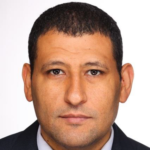
Dr. Mohamed Abdelawwad
University of Kassel, Germany
Dr. Mohamed Abdelawwad was born in 1978. He received his B.Sc. in physics in 2001, M.Sc. in electrical communications engineering in 2009, and Ph.D. in microsystems technology in 2014. Since 2015, he is a research scientist and team leader of the Safe Embedded Systems Team in the Department of Computer architecture and System programming, University of Kassel, Germany.
He has published many scientific papers in international journals and conferences in the fields of materials science, nanotechnology, photonics, robotics, sensorics, embedded systems, cyber physical system, and functional safety. His current major research interests are in the field of safety chip technology, embedded systems, cyber physical systems, real-time systems, human robot collaboration, system on a chip for safety related applications.
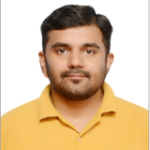
Dr. Uzair Aslam Bhatti
Nanjing Normal University, China
Uzair Aslam Bhatti received the BE degree in Computer System from the Mehran University of Engineering and Technology (Jamshoro), Sindh, Pakistan, in 2008, MS in Computer Science from PAK KIET, Karachi, Pakistan in 2013 and the Ph.D. degree from the Hainan University, Hainan, China in 2019. Since 2019, he has been with Nanjing Normal University, where he is a working as post-Doctoral researcher. His area of specialization of research during post doctorate is: Remote sensing image processing, AI and Feature based machine learning. His research interests include image analysis, hyper-spectral remote sensing, data fusion, machine learning, and artificial intelligence. In 2017, he received the best research paper award in international conference in TSINGHUA UNIVERSITY, Beijing. During PHD, he worked on recommendation system for health care systems and overall published 50+ research publication (SCI, EI, SSCI) etc
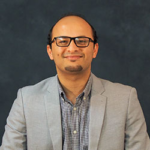
Dr. Qammer H. Abbasi
University of Glasgow, U.K.
Dr Abbasi is a Reader with the James Watt School of Engineering, University of Glasgow, U.K., deputy head for Communication Sensing and Imaging group, Program Director for Dual PhD Degree, deputy theme lead for Quantum & Nanotechnology in the University’s Advance Research Centre, CoManager for RF and terahertz laboratory and lead for healthcare and Internet of things use cases with Scotland 5G Center Urban testbed. He has grant portfolio of £6M and contributed to more than 350+ leading international technical journal and peer reviewed conference papers and 10 books and received several recognitions for his research including URSI Young Scientist Awards, UK exceptional talent endorsement by Royal Academy of Engineering, National talent pool award by Pakistan, International Young Scientist Award by NSFC China, National interest waiver by USA, University Research Excellence Award from TAMUQ in two consecutive years, Reward for Excellence from University of Glasgow, Research Culture award University of Glasgow, 7 best paper awards, most downloaded paper in IEEE Terahertz Transaction, cover of MDPI journal twice, and best representative image of an outcome by QNRF. In addition, his work received media coverage by Analog IC tips, Microwaves & RF newsletters, Vertical news, Pakistan Dawn news, BBC news, Scotland TV, Chinese news and many other media houses. Dr. Abbasi is an IEEE senior member and is chair of IEEE AP/MTT Scotland joint chapter and was chair of IEEE young professional affinity group. He is an Associate editor for IEEE Journal of Electromagnetics, RF, and Microwaves in Medicine and Biology, IEEE Sensors, IEEE Internet of Things, IEEE open access Antenna and Propagation, senior editor for Frontiers IoT and Sensors Networks section and acted as a guest editor for numerous special issues in top notch journals. He is a committee member for IEEE APS Young professional, IEEE 1906.1.1 standard on nano communication, IEEE APS/SC WG P145, IET
Antenna & Propagation and healthcare network. Dr. Abbasi has been a member of the technical program committees of several IEEE flagship conferences and technical reviewer for several IEEE and top-notch journals and acted as TPC chair and executive chair for 4th, 5th and 6th international UCET conference 2019, 2020, 2021 in addition to EAI Bodynets 2021 General Co-Chair. He serves regularly as reviewer for EPSRC, MRC and international funding bodies, organiser of conferences, special sessions, workshops and TPC member for several IEEE flagship conferences, in addition to reviewer for Wiley & Sons books, Springer, IET books, IEEE conferences and more than 30 leading journals.

Mr. Habibullah Khan Nasar
Social Policy Analyst at UNDP
Mr. Habibullah Khan Nasar serves as the Social Policy Analyst at UNDP’s Development Policy Unit’s flagship initiative of National SDGs Initiative, which is mandated to facilitate mainstreaming and domestication of Agenda 2030. Under his current role, he is entrusted with the responsibility to advise the Government of Balochistan on alignment of its development policies, plans, strategies, and allocations with SDGs; strengthening SDG monitoring and reporting mechanisms; aligning financing flows with Agenda 2030 and adopting innovative approaches for accelerated progress on SDGs. He is an experienced development professional with Master of Arts in Social Work and possesses over 15 years of progressive experience in development policy research, advocacy & advisory services as well as program management in the United Nations system, international financial institution, research institute, INGOs and NGOs.

Dr. Zartash Afzal Uzmi
Lahore University of Management Sciences, Lahore
Zartash has been on the faculty of Computer Science and Electrical Engineering departments at LUMS University since 2002. He has served on numerous committees, both within LUMS and at the national level (e.g., Higher Education Commission, Punjab University, and National Computing Council). He is the founder of various LUMS initiatives including the LUMS space observatory, the 4G/5G lab, and the LUMS Center of Entrepreneurship (now the National Incubation Center, Lahore).
Zartash has co-founded multiple successful Pakistani software and hardware ventures including Confiz Limited, Pakwheels, Simplicant, and WiMetrix. He has been instrumental in building a strong bi-lateral channel between industry and the top academia of the country, serving on several advisory and selection boards within industry and academia. Presently, he serves on the Prime Minister’s National Task Force on IT and Telecom.
Zartash has extensively published in top international conferences and contributed to the Internet Engineering Task Force (IETF), the body which standardizes Internet protocols and standards. His current research interests lie in computer networking protocols, internet censorship, applications of blockchain technology, and optimizing service provider networks for cost-effective operations.
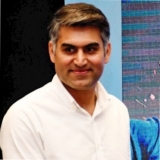
Mr. Waqas Aman Ullah
Vice President at Telenor
Expert in channel Management & Customer experience strategies using design thinking in large professional organization. Enjoy taking disruptive digital products into established markets and acting as a Change Agent in the telecommunications industry. Over 13 years of Telco experience; which range from that of a frontline Customer Representative Officer to functional leadership positions to the Commercial Director of the company.
These experiences include initiating digital transformation, Digitizing Sales & Distribution Network, Self Service booths, customer services, setting up large-scale franchisee network, alternate channels, managing sales & service stores, outsourcing, building structures and teams, cost transformation projects, segmentation & processes for managing exponential growth
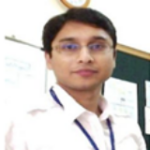
Dr. Syed Ali Hassan
School of Electrical Engineering and Computer Sciences, NUST
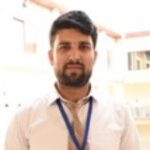
Dr. Faisal Khan
Assistant Professor, COMSATS Abbottabad
Dr. Faisal received the B.S. degree in electronics engineering and the M.S. degree in electrical engineering from COMSATS University Islamabad (at Abbottabad), Pakistan, in 2009 and 2012, respectively, and the Ph.D. degree in electrical engineering from Universiti Tun Hussein Onn Malaysia, Malaysia, in 2017. From 2010 to 2012, he was a Lecturer with the University of Engineering and Technology, Abbottabad, Pakistan. Since 2017, he has been an Assistant Professor with the Department of Electrical and Computer Engineering, COMSATS University Islamabad (at Abbottabad). He has authored more than 100 publications, and two patents. His research interests include design of flux-switching, and synchronous and DC machines. Furthermore, he is a member of the IEEE Industrial Electronics Society and the IEEE-IES Electrical Machines technical Committee. He has received multiple research awards.
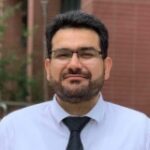
Dr. Muhammad Waqas
Assistant Professor, GIKI Swabi
Dr. Muhammad Waqas own his BSc in Electrical Engineering from University of Engineering & Technology, Peshawar, Pakistan in (2009), MSc degree in Electrical (Communication) Engineering from the University of Engineering & Technology, Peshawar, Pakistan in (2014) and a PhD in Information and Communication Engineering from the Tsinghua University, Beijing, China (2019). Dr. Muhammad Waqas Ph.D. research focuses on the physical layer security in wireless communication and fog computing. Besides, his research included investigating the impact of mobility in wireless communication. His Ph.D. work could help in the authentication, authorization, confidential information, and mobility factors among legitimate users in 5G and beyond wireless communication. During his Ph.D., he developed and strengthened several technical skills such as coalition game theory, social phenomena, reinforcement learning, and mobile homophiles. He is always seeking to a demonstrable ongoing commitment to professional enhancement, scholarship and research, and project work. He is also committed to exploring external funding opportunities, awards or grants or possible commercial opportunities.
Venue
BUITEMS Takattu Campus, Quetta
BUITEMS Takattu Campus, Quetta
Balochistan University of Information Technology, Engineering and Management Sciences (BUITEMS), has given a new vision and distinct meaning to education. BUITEMS is located in Quetta, also called the fruit basket of Pakistan. Quetta is one of the most beautiful cities of Pakistan distinguished by the unique backdrop of mountains, beautiful lakes and fruit orchards in the outskirts.
Nearby Locations
- Quetta International Airport (2.0 miles)
- Serena Hotel (4.5 Miles)
- Quetta Railway Station (5.0 Miles)
Nearby Locations
- Quetta International Airport (2.0 miles)
- Serena Hotel (4.5 Miles)
- Quetta Railway Station (5.0 Miles)
SPONSORS
Platinum Sponsors

Gold Sponsors

Bronze Sponsors

Sponsors

PARTNERS




